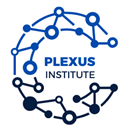[fusion_builder_container hundred_percent=”no” hundred_percent_height=”no” hundred_percent_height_scroll=”no” hundred_percent_height_center_content=”yes” equal_height_columns=”no” menu_anchor=”” hide_on_mobile=”small-visibility,medium-visibility,large-visibility” status=”published” publish_date=”” class=”” id=”” background_color=”” background_image=”” background_position=”center center” background_repeat=”no-repeat” fade=”no” background_parallax=”none” enable_mobile=”no” parallax_speed=”0.3″ video_mp4=”” video_webm=”” video_ogv=”” video_url=”” video_aspect_ratio=”16:9″ video_loop=”yes” video_mute=”yes” video_preview_image=”” border_size=”” border_color=”” border_style=”solid” margin_top=”” margin_bottom=”” padding_top=”” padding_right=”” padding_bottom=”” padding_left=””][fusion_builder_row][fusion_builder_column type=”1_1″ layout=”1_1″ spacing=”” center_content=”no” link=”” target=”_self” min_height=”” hide_on_mobile=”small-visibility,medium-visibility,large-visibility” class=”” id=”” background_color=”” background_image=”” background_image_id=”” background_position=”left top” background_repeat=”no-repeat” hover_type=”none” border_size=”0″ border_color=”” border_style=”solid” border_position=”all” padding_top=”” padding_right=”” padding_bottom=”” padding_left=”” margin_top=”” margin_bottom=”” animation_type=”” animation_direction=”left” animation_speed=”0.3″ animation_offset=”” last=”no”][fusion_title hide_on_mobile=”small-visibility,medium-visibility,large-visibility” class=”” id=”” content_align=”center” size=”1″ font_size=”” line_height=”” letter_spacing=”” margin_top=”” margin_bottom=”” text_color=”” style_type=”default” sep_color=””]
Deeper Learning: Published Plexus Research and Project Review
[/fusion_title][fusion_text columns=”” column_min_width=”” column_spacing=”” rule_style=”default” rule_size=”” rule_color=”” hide_on_mobile=”small-visibility,medium-visibility,large-visibility” class=”” id=””]In the spring of 2011 Plexus introduced the Deeper Learning newsletter which offered in-depth reviews of projects and research within the Plexus network.[/fusion_text][fusion_text columns=”” column_min_width=”” column_spacing=”” rule_style=”default” rule_size=”” rule_color=”” hide_on_mobile=”small-visibility,medium-visibility,large-visibility” class=”” id=””]
This month, we are proud to present Attractors and Nonlinear Dynamical Systems, by Dr. Jeffrey Goldstein. It’s a scientific look at the fascinating phenomenon of attractors.You’ve likely heard us use the term. Now’s your chance to explore the science behind it.
If you were looking for a nursing home for your frail aging mother, would you look for the best physical facility, the most techically skilled staff, and the best planned recreational opportunities? Complexity scholars Reuben McDaniel and Ruth Anderson say the most important indicator of good patient care is really the quality of the relationships among the nursing home staff members.
Albert Einstein Medical Center is a Beta Site in the Plexus Institute PD MRSA Prevention Partnership supported by The Robert Wood Johnson Foundation. This Partnership involves 6 Beta Sites and 40 Partner hospitals dedicated to pioneering the use Positive Deviance in MRSA prevention. The partnership is a collaboration involving Plexus Institute, Positive Deviance Initiative, CDC, Delmarva Foundation/Maryland Patient Safety Center, and the Southwestern PD/MRSA Prevention Collaborative. In addition to encouraging outcomes in declining MRSA infections and transmissions, the PD/MRSA initiative at the hospital has brought about increased collaboration and new relationships among members of the hospital staff.
This story is about the quest at the VA Pittsburgh Healthcare System (VAPHS) to eliminate the transmission of deadly healthcare associated infections, specifically Methicillin-Resistant Staphylococcus Aureus or MRSA. Using the social and behavioral change process Positive Deviance, the facility was able to engage the innovativeness and energy of hundreds of hospital staff members – from environmental services staff to nurses, physical therapists, recreational therapists, unit secretaries, physicians, residents – and patients to uncover and create practices to prevent transmission of MRSA and to spread these practices to their colleagues. In so doing, a culture of engagement, participation and local action emerged.
Dr. Robert A. Lindberg, a student of complexity science, listens carefully to patient’s stories. He thinks what he learns from their stories about their lives sometimes tells just as much about health as the traditional measures such as blood tests and x-rays. He uses tests and lab reports too, but he also pays attention to environment and interactions. He uses analogies, metaphors and stories to communicate, and he likes to provide advice he thinks people will follow because it relates to their own lives and goals.
A story by the distinguished communications scholar, Arvind Singhal, PhD, about the complexity science-inspired leadership of Henri Lipmanowicz.
[/fusion_text][/fusion_builder_column][/fusion_builder_row][/fusion_builder_container]
